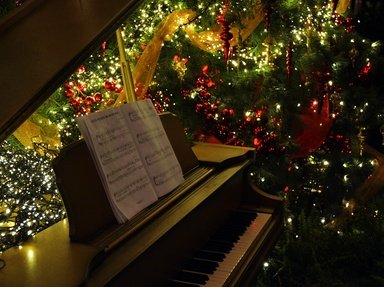Quiz Answer Key and Fun Facts
1. 'On the second day of Christmas...'
2. 'Hark! the herald angels sing...'
3. 'O'er the fields we go...'
4. 'I wanna wish you a merry Christmas...'
5. 'Come, they told me...'
6. 'Good King Wenceslas looked out...'
7. 'Silent night, holy night...'
8. 'O come, all ye faithful...'
9. 'Of all trees that are in the wood...'
10. 'May your days be merry and bright...'
Source: Author
heatherlois
This quiz was reviewed by FunTrivia editor
agony before going online.
Any errors found in FunTrivia content are routinely corrected through our feedback system.
